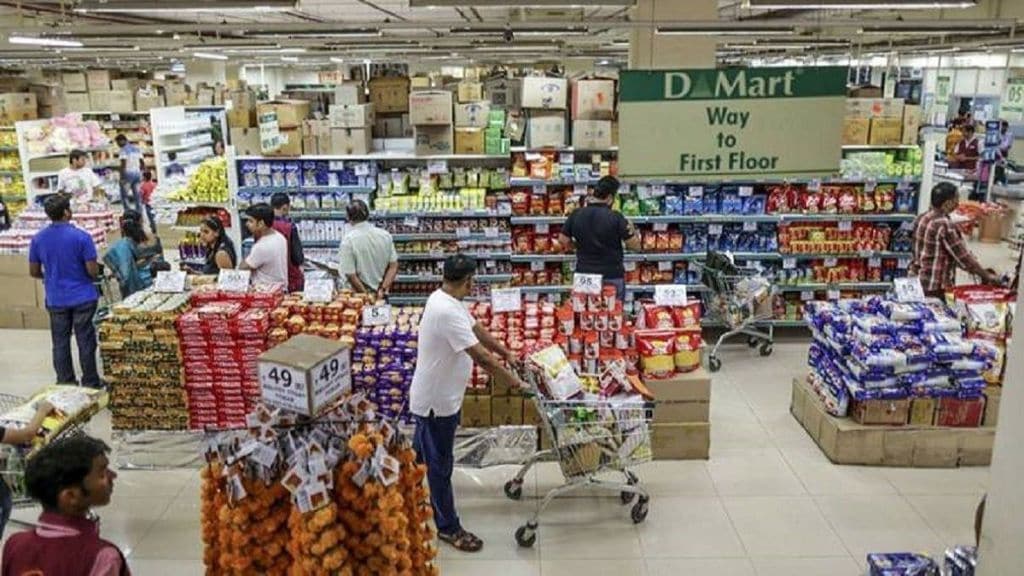DMart is getting back to what it used to do the best – convincing shoppers to add more to her cart. According to the retailer’s Q4FY24 update released last week, its standalone revenue for the period jumped 20% year-on-year to Rs 12,393.46 crore. That compares well to the 17-18% revenue growth seen between Q1 and Q3FY24.
Store additions at 24 outlets in the fourth quarter were the highest addition in nine months, with revenue per store growing 7% year-on-year to Rs 34 crore. That’s a great comeback for a company which seemed to have lost its sheen over the past couple of years.
Markets, of course, seemed to have already sensed the spring in DMart’s steps. The stock has rallied 19% in a month, touching an intra-day high of Rs 4,831 on Wednesday. It is still quite some distance away from the all-time high of Rs 5,900 it hit in October, 2021. But things are changing – fast.
CLSA released a glowing report last month saying the stock would hit Rs 5,100 in a year. The Q4 update has only added fuel to the fire. CLSA said the company has the potential to increase its market share from under 1% now to 5% in the next few years, driven by its everyday-low-price-low-cost strategy. For perspective, the company remains amongst the lowest-price retailers in the industry, as it passes on gains to consumers by ensuring high stock turns, a tight leash on costs and timely payment to suppliers.
“This is a virtuous loop that allows the company to gain market share in a price-sensitive market. At the same time, the retailer is rapidly scaling up its private-label assortment, which will drive the next leg of share gains as well as revenue growth,” CLSA said.
While private brands contributed 5.16% to Avenue Supermarts’ FY23 consolidated revenue of Rs 42,839.5 crore, experts say this number could touch 20-25% of revenue in the next few years as the retailer expands its private-brand presence across categories from foods to apparels. Private brands are currently restricted to segments such as branded commodities and small electronic items. CLSA, in fact, identified over 20 DMart private labels that are available at 20-60% discount to rival brands.
And Dmart already sells these brands 15-20% below their list prices.
Analysts at ICICI Securities says that private brands may also help the retailer tackle competition coming from apparel majors such as Trent’s Zudio, Landmark Group’s Max and Reliance Retail, which are offering clothes at competitive price points, targeting families and youth, consumers that also frequent DMart stores.
“These players have been chipping away at DMart’s general merchandise and apparel sales because of their attractive pricing and omni-channel strategy,” ICICI Securities said in a recent report on the company.
DMart’s pre-Covid sales from general merchandise and apparel (GM&A) was around 28-29%, which is now down to around 23% of overall sales. The retailer derives around 56% of its revenue from foods and 21% from non-food FMCG.
In a conversation with FE in January, Avenue Supermarts MD & CEO Neville Noronha had said that the contribution from general merchandise and apparel had stabilised and trends were encouraging in the post-festive period.
“The secular trend has been the emergence of a lot of specialists who have come into the market notably on the apparels side. Which has impacted us a little bit. While there is a bit of slack from our side, we are working on it,” Noronha said of the company’s future strategy.
Analysts say that a revival in GM&A augurs well for DMart, which derives higher margins from the segment versus food and FMCG.
“Though food and FMCG is a high sales-volume driver, for a better margin profile, it is sales from general merchandise and apparels that can aid performance,” G Chokkalingam, founder and MD at Mumbai-based Equinomics Research, said.

